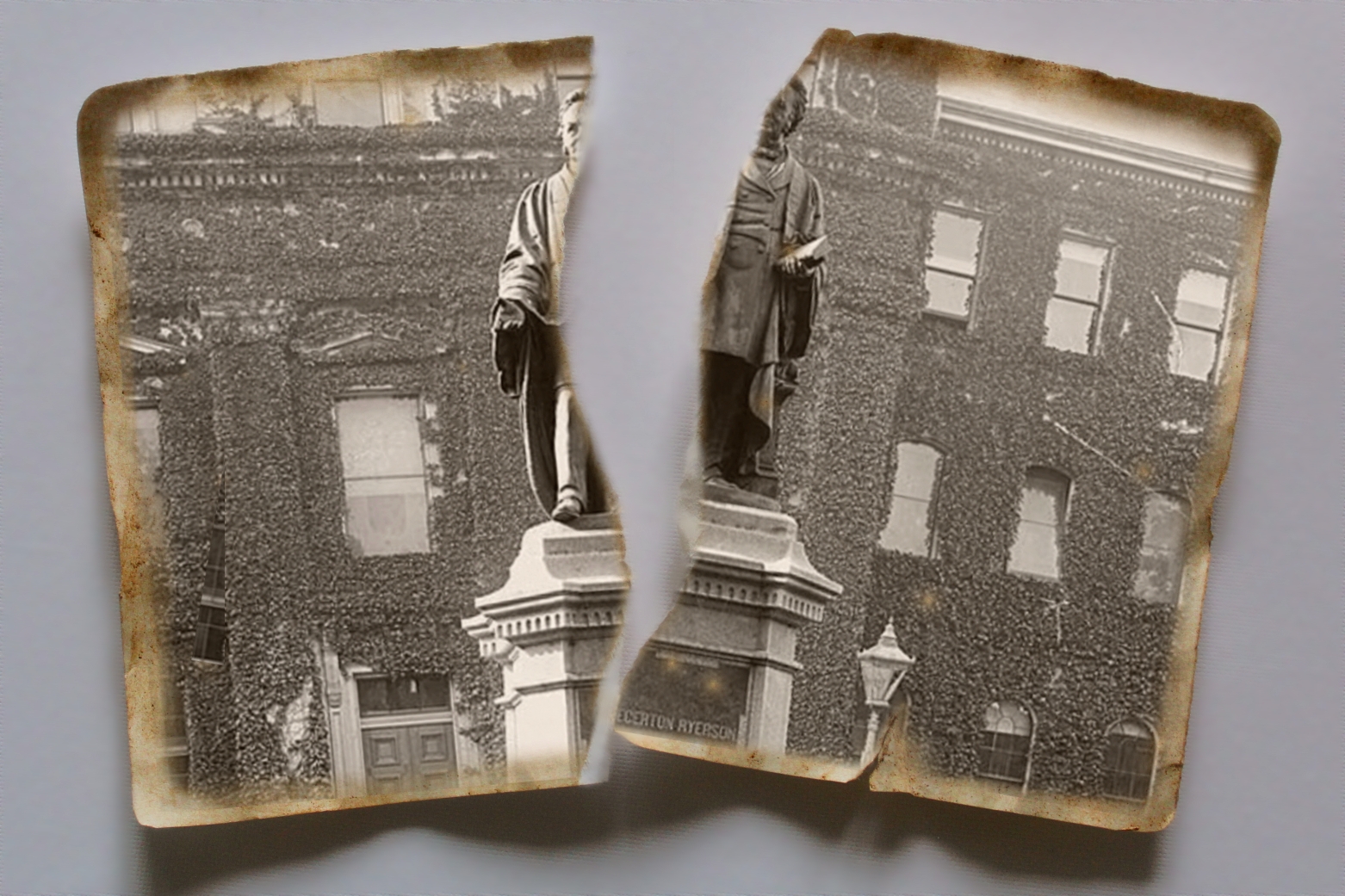The reappraisal of the celebration of Canada Day this year marks another development in the recent shift in how the Canadian public views the role that Indigenous peoples play in the country’s history.
The shift was exacerbated by the discovery of hundreds of Indigenous children in unmarked graves at a residential school in Kamloops, B.C., which led to similar discoveries across the country, highlighting the systemic oppression faced by Indigenous peoples that continues to this day.
Calls of justice for Indigenous peoples and a re-examining of certain colonial figures and institutions have become more frequent due to the recent discoveries at residential schools. Protests in cities across Canada have led to the toppling of statues of said colonial figures in Winnipeg and Victoria, B.C., and churches across the country have been set on fire in light of the Catholic Church’s role in running the residential school system.
Canada Day, perceived as a celebration of the colonization of Indigenous land, has long been disparaged by Indigenous peoples. However, the recent discoveries at residential schools across Canada have also further renewed calls to cancel Canada Day celebrations. Prime Minister Justin Trudeau had stressed the fact that Canada Day would be a time for reflection rather than celebration, and protests across the country were held on July 1 to cancel the holiday entirely.
Burak R. and Kay Graves, both third-year psychology students, attended the Cancel Canada Day rally in Toronto to show support for the Indigenous community.
“I haven’t celebrated Canada Day in years due to knowing from a young age the horrors this land was built on, so when I found out from my Anishinaabe acquaintance that there was an actual event to push for the cancellation of Canada Day, I knew I had to be there,” Graves says.
“As an international student I do appreciate the opportunities given to me here,” Burak says. “But I think it is also very important for people to acknowledge the atrocities committed by their country.”
Burak, who has family living in Canada, says that while they now acknowledge the oppression suffered by Indigenous people, they still do not consider them as “part of Canada.”
“Rather than being willing to show solidarity and listen to their stories, my family perceives them as raising their voices as a threat to their Canadian identity. They tend to criticize Indigenous people and allies for disrespecting historical figures, and the more conversations like this are being had, the more politicized they become.”
Burka adds: “People are choosing to criticize the methods used to protest, like the toppling of statues and cancelling Canada Day, instead of addressing everything that has been committed against Indigenous peoples.”
Graves, on the other hand, has observed a more optimistic outlook among their peers.
“I have seen those around me begin to recognize that the horrors of residential schools weren’t just stories, but actual lived experiences by children and youth. I’ve always been vocal on Indigenous issues, but throughout the last three to four years I’ve gotten more involved in sharing that information among those around me, and I will continue to do so.”
The increased awareness of Indigenous issues has also been felt on university campuses, particularly at Ryerson University.
Egerton Ryerson, the namesake of the university, played a part in the establishment of the residential school system in the 19th century. This has led to a concerted effort by Indigenous students to rename the university, while the statue of Ryerson was taken down in early June.
At York, the administration has offered support to Indigenous students in light of the recent discoveries. However, Alexus Marticorena, Vice-President Equity for the York Federation of Students (YFS), says that what is currently being done is not enough.
“The university is complicit and can afford to do more in supporting Indigenous communities,” Marticorena says.
“Recognizing the colonial nature of the institution in the way that they occupy land and continue to expand its campuses and recognizing the barriers that Indigenous folks face in accessing post-secondary education, it is pertinent that the university administration is creating meaningful space for Indigenous voices and communities to thrive, past the usual performative land acknowledgements.”
On the other hand, YFS has collaborated with the Indigenous Students’ Association at York during Indigenous History Month to host events for York students, of which Marticorena feels the administration should do more.
“The labour typically falls on Indigenous community members and students at York to help facilitate such discussions, but it’s time others within the institution step up. We think the university administration should be centering Indigenous voices and ensuring space for conversations surrounding the Indigenization of our institutions a lot more frequently than they are.”


